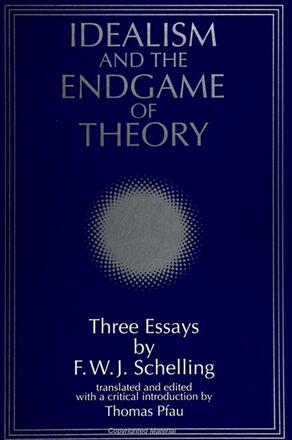
Idealism and the Endgame of Theory
Three Essays by F. W. J. Schelling
Alternative formats available from:
Three seminal philosophical texts by F. W. J. Schelling, arguably the most complex representations of German Idealism, are clearly presented here for the first time in English.
Description
Three seminal philosophical texts by F. W. J. Schelling, arguably the most complex representations of German Idealism, are clearly presented here for the first time in English. Included are Schelling's "Treatise Explicatory of the Idealism in the Science of Knowledge" (1797), "System of Philosophy in General" (1804), and "Stuttgart Seminars" (1810). Of these texts, the "Treatise" constitutes the most comprehensive critical reading of Kant and Fichte by a contemporary thinker and, as a result, proved seminal to Samuel Taylor Coleridge's efforts at interconnecting English Romanticism and German speculative thought. Extending his early critique of subjectivity, Schelling's "System of Philosophy in General" and his "Stuttgart Seminars" launch a far more radical inquiry into the notion of identity, a term which for Schelling, increasingly reveals the contingent nature and inescapable limitations of theoretical practice.
An extensive critical introduction relates Schelling's work both to his philosophical contemporaries (Kant, Fichte, and Hegel) as well as to the contemporary debates about Theory in the humanities. The book includes extensive annotations of each translated text, an excursus on Schelling and Coleridge, a comprehensive multi-lingual bibliography, and a glossary.
Thomas Pfau is Assistant Professor of English at Duke University. He is the editor and translator of Friedrich Hölderlin: Essays and Letters on Theory, also published by SUNY Press.
Reviews
"This is a well chosen group of essays by Schelling; it gives a sense of Schelling's development which is not available from those works already translated; as such it is a much needed complement to what is already available in English.
"Apart from its contribution to a greater understanding of Schelling, the presentation of this volume does much to define the issues at the source of the recurrent preoccupation with identity in contemporary theory. " —David Ferris, Yale University